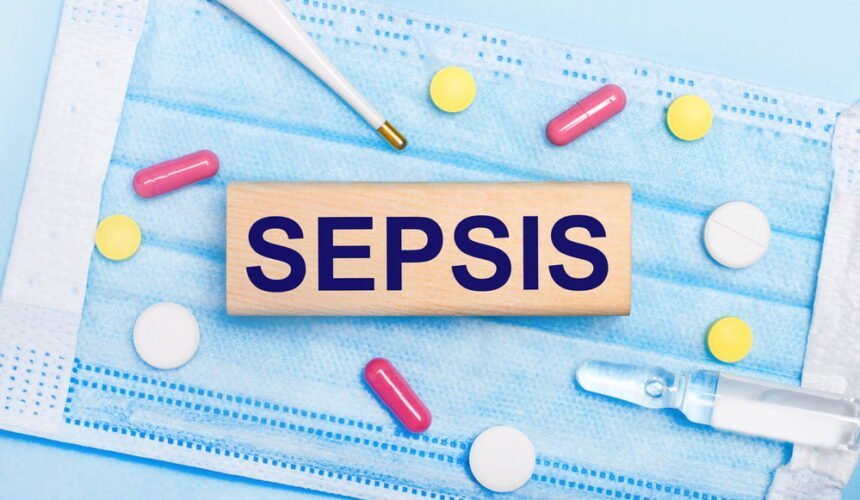In this article, we’ll be taking a look at the ways in which new innovative tools are getting better at treating and identifying sepsis…
According to the UK Sepsis Trust, there are around 150,000 cases of sepsis in the UK each year. Sadly, 25,000 of those affected are children. While sepsis is treatable, doctors must act fast as the condition is very severe and is fatal if left. On top of this, the condition is sometimes hard for doctors to diagnose immediately.
If your or a loved one’s sepsis was misdiagnosed, or if it was not detected as early as possible, then you should look into sepsis claims as you may be eligible to make one.
Due to the high mortality rates and the difficulty to treat and diagnoses sepsis, there have been recent technological developments in the field. In this article, we’re going to be looking at the ways in which these innovations are shaping the future of sepsis treatment…
What is Sepsis?
Sepsis is a condition which occurs when a patient suffers an extreme reaction to an infection. In many cases, an infection which can normally be treated fairly easily can prove to be fatal should the patient contract sepsis. Bacterial infections are the most common cause of sepsis; however, it can be caused by other infections including COVID-19 and even flu.
Although there are no solid figures, it’s thought that a significant number of COVID-19 patients actually died due to the fact that sepsis further complicated their symptoms. Symptoms of sepsis can include a high heart rate, a weak pulse, extreme pain or discomfort and confusion or disorientation. In UK hospitals, sepsis is usually treated with antibiotics.
In some cases, a patient will contract sepsis within a hospital environment and, with hugely increased hospital admissions over the last few of years, numbers of people contracting the deadly illness have increased. The patient also has to be educated about sepsis in the hospital.
Unfortunately, misdiagnosis and late diagnosis of sepsis often happens, and approximately 4 out of 10 people who get the illness will die. In the UK, there are at least 48,000 deaths a year related to sepsis. On top of the staggering number of deaths, many more patients suffer from life changing after-effects after a sepsis diagnosis, including mental health conditions.
How is Technology Shaping the Future of Sepsis Treatment?
As with many other parts of the medical sector, doctors are turning to technology to reduce the number of sepsis-related deaths and, some of the tech that is currently emerging is as follows:
Detection
Technology such as the Weezion dx is able to identify the sepsis bacteraemia or fungemia in just 90 minutes compared to the usual 24 hours or more which current medical testing takes. By identifying the microorganism which causes the sepsis bacteria, doctors can begin treatment more rapidly, giving the patient a more positive prognosis.
Artificial intelligence is also beginning to play a part in faster sepsis diagnosis and, this advanced technology will often mean that a speedy diagnosis will preclude the need for better care management.
Monitoring
While detecting sepsis is of paramount importance, it’s also essential that healthcare professionals are able to monitor a patient’s progress so that they can act quickly should a patient’s condition begin to worsen after a sepsis diagnosis.
A number of UK hospitals, including those in Cambridge, Liverpool and Berkshire are now using digital technology which brings together patient observations and lab results in one central hub. The aim of this is to more effectively manage a patient’s condition and, therefore, improve their prognosis. The digital system is also being used to screen patients on admission to a hospital to enable faster diagnosis and treatment.
Treatment
AI and other forms of technology are being utilised in the UK to better measurement of treatment and medication based on a patient’s history and individual circumstances. Receiving the right treatment at the right time is vital for ensuring that the patient has the best chance of survival and full recovery possible.
The use of AI is helping medical professionals across the world to better analyse illnesses and conditions in order to better understand their behaviour and how they may affect each individual patient.
In today’s world, improved technology also means that new treatments and medications can be created and tested much more efficiently – and much faster – than in ‘the old days’. This means that new life-saving treatments can be tested, approved and distributed to hospitals at a quicker pace.
Sepsis and New Technology
With the healthcare system harnessing the power of technology to detect sepsis, there is hope for fewer deaths and better treatment for patients.
As we have discussed in this article, advanced technology such as AI can be used for early detection, prognosis assessment, mortality prediction and overall management of the infection.
Should you feel that you or a loved one may be affected by sepsis, it’s vital that you seek medical help immediately; either by calling an ambulance or going straight to the hospital as every second counts when it comes to diagnosing and treating this delay condition.
Please be advised that this article is for general informational purposes only and should not be used as a substitute for advice from a trained medical or legal professional. Be sure to consult a medical professional or healthcare provider if you’re seeking medical advice, diagnoses, or treatment. And, be sure to consult a lawyer/solicitor if you’re seeking advice on the law. We are not liable for risks or issues associated with using or acting upon the information on this site.








